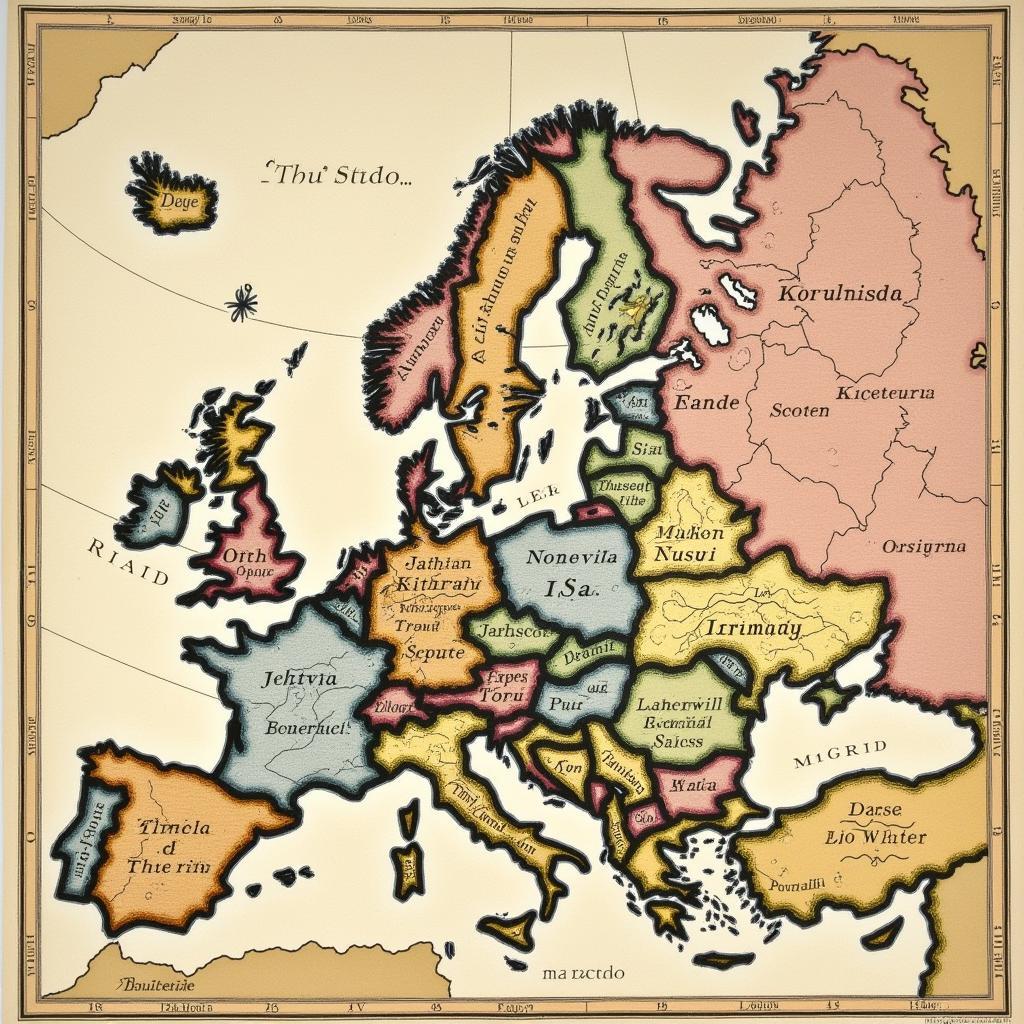Common surnames like Smith, Jones, or Nguyen offer a captivating glimpse into the past, reflecting historical trends, cultural nuances, and societal structures. Understanding the origins and significance of these names can unlock a treasure trove of information about our ancestors and the world they inhabited.
Uncovering the Roots of Common Surnames
The emergence of surnames as we know them today was a gradual process, solidifying around the 11th century in Europe and later spreading globally. Prior to this, individuals were often identified solely by their given name, sometimes accompanied by a descriptor related to their occupation, location, or parentage.
As populations grew and societies became more complex, the need for a more formalized system of identification arose. This led to the adoption of hereditary surnames, passed down from one generation to the next.
Occupational Surnames: Echoes of Ancestral Trades
Many common surnames find their origins in the occupations of our forefathers. These occupational surnames offer a fascinating window into the economic landscape of bygone eras.
For instance, the surname “Smith,” prevalent across Europe and North America, harks back to the essential trade of blacksmithing. Similarly, “Cooper” denotes a barrel maker, “Taylor” a tailor, and “Baker” a baker.
These surnames not only reflect the professions of our ancestors but also highlight the enduring significance of these trades in shaping communities and societies.
Geographical Surnames: Mapping Ancestral Journeys
Another prominent category of common surnames is geographical surnames, derived from the locations where individuals originated or resided. These names can provide valuable clues about ancestral migration patterns and historical settlement trends.
Surnames like “English,” “French,” or “Scott” directly reference national origins, while others like “Hill,” “Lake,” or “Forest” allude to topographical features of ancestral homelands.
 Geographical Surnames and Migration
Geographical Surnames and Migration
Examining the distribution of these surnames today can offer insights into historical population movements and cultural exchanges.
Patronymic and Matronymic Surnames: Tracing Lineage Through Names
Patronymic surnames, derived from the father’s given name, and matronymic surnames, derived from the mother’s given name, provide a direct genealogical link to our ancestors.
Surnames like “Johnson” (son of John), “Williams” (son of William), or “Anderson” (son of Anders) exemplify the patronymic tradition common in many cultures.
Understanding the patterns of patronymic and matronymic surnames can shed light on historical naming practices and societal norms surrounding family and inheritance.
Common Surnames Today: A Reflection of Diversity and Change
In today’s interconnected world, common surnames continue to evolve, reflecting migration patterns, cultural blending, and changing social dynamics. The global distribution of surnames paints a vibrant tapestry of human history, highlighting the interconnectedness of our shared heritage.
While some surnames retain strong ties to specific geographical regions or cultural groups, others have transcended these boundaries, becoming ubiquitous across continents.
Exploring the evolution and distribution of common surnames offers a fascinating lens through which to examine the complex interplay of history, culture, and identity.